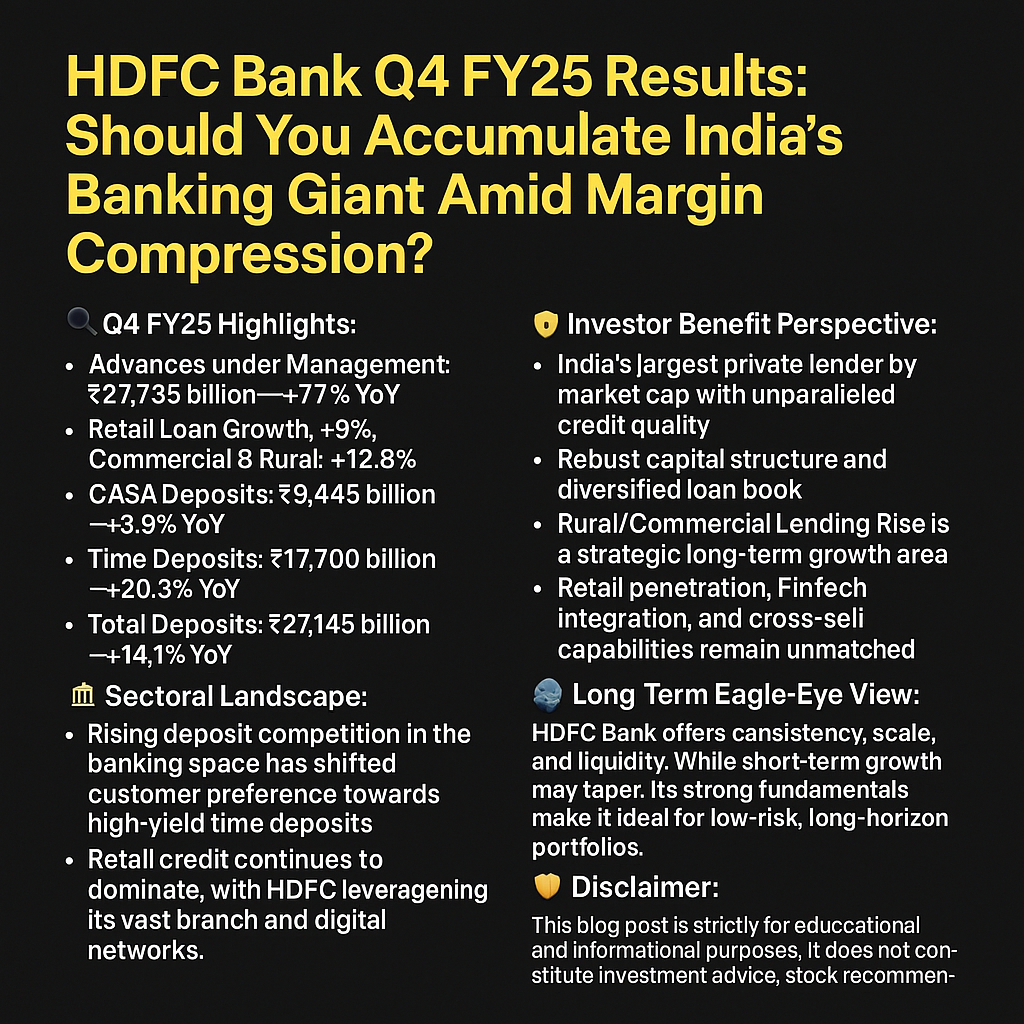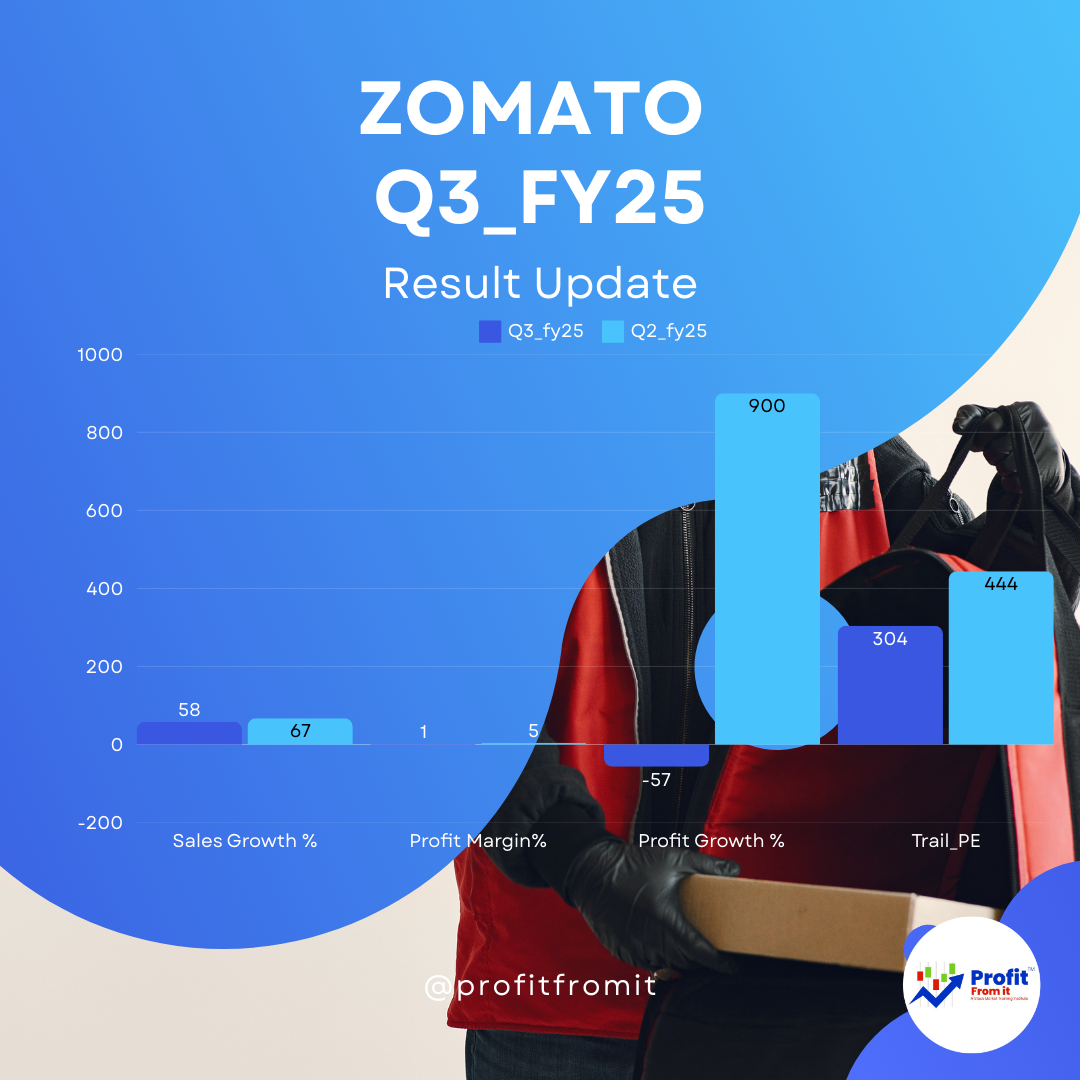
HDFC Bank Q4 FY25 Results: Should You Accumulate India’s Banking Giant Amid Margin Compression?
🔎 Q4 FY25 Highlights:
Advances under Management: ₹27,735 billion — +7.7% YoY
Retail Loan Growth: +9%, Commercial & Rural: +12.8%
CASA Deposits: ₹9,445 billion — +3.9% YoY
Time Deposits: ₹17,700 billion — +20.3% YoY
Total Deposits: ₹27,145 billion — +14.1% YoY
🏦 Sectoral Landscape:
Rising deposit competition in the banking space has shifted customer preference towards high-yield time deposits.
Retail credit continues to dominate, with HDFC leveraging its vast branch and digital networks.
The Indian banking sector is entering a cycle of margin normalization after pandemic-led liquidity surges.
🎯 Investor Benefit Perspective:
India’s largest private lender by market cap with unparalleled credit quality
Robust capital structure and diversified loan book
Rural/Commercial Lending Rise is a strategic long-term growth area
Retail penetration, FinTech integration, and cross-sell capabilities remain unmatched
⚠ Risk Factors:
CASA Ratio Pressure: Slower growth may affect cost of funds
Margin Compression Risk: Rising time deposit share reduces Net Interest Margin
Corporate Loan Book Weakness: Decline of ~3.6% YoY indicates caution or loss of market share
🧠 Long-Term Eagle-Eye View:
HDFC Bank offers consistency, scale, and liquidity. While short-term growth may taper, its strong fundamentals make it ideal for low-risk, long-horizon portfolios.
🛡 Disclaimer:
This blog post is strictly for educational and informational purposes. It does not constitute investment advice, stock recommendation, or solicitation to buy/sell securities. Investors are advised to perform their own due diligence or consult a certified investment advisor. Stock markets are subject to market risk.
Comments (0)
Categories
Recent posts


ITC Hotels and its strategic plans ...
30 Dec 2024
Reliance Leads Energy Revolution: 100% ...
22 Jan 2025 for Investors The provided chart outlines key metrics for Nifty 500 companies across different periods (FY22 t.png)
📊 Analysis of Nifty 500 Companies: ...
14 Feb 2025




